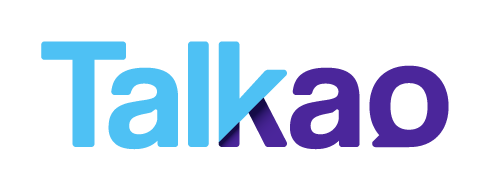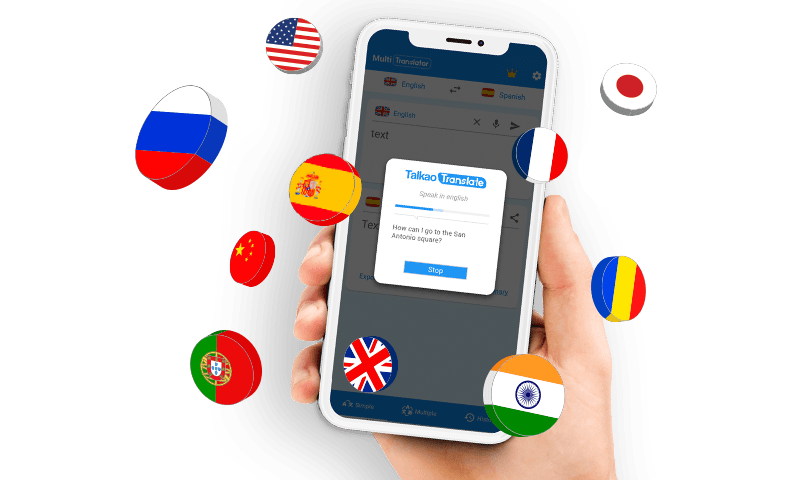
Today, we’ll discuss the relevance and advantages (or disadvantages) of dedicating a year to language learning after university. Many young graduates—if not all—feel somewhat lost after completing their studies. After years of studying, passing exams, writing dissertations, completing internships, and dealing with countless other responsibilities, they are suddenly faced with a harsh reality.
This reality is none other than a highly competitive job market with more candidates than job openings—at least for positions related to their field of study with decent working conditions. While local differences exist, this is a global issue affecting graduates worldwide.
Opportunities for recent university graduates are often scarce and poorly paid. In this scenario, instead of feeling discouraged, the best option is to take action and find ways to stand out. As we’ll see, a year dedicated to learning a language won’t guarantee instant employment or a high salary, but it does create a valuable differentiator that can be highly beneficial.
If you’re wondering, “Is it worth investing a year in learning a new language after university?”, keep reading to find out why it might be one of the best decisions for your future.
A year of language learning: A long-term investment
When we talk about taking a year of language learning, we mean adding an extra year to your academic journey. That year should be focused entirely on mastering a second language. In simple terms, pausing the start of your professional career to dedicate yourself fully to language acquisition.
At first, this decision might seem extreme or unnecessary, as it involves additional costs and time—especially at a stage in your life when you might be eager to enter the job market.
It’s also natural to think that doing this right after university isn’t the best timing. However, as you’ll soon discover, this is actually one of the most strategic moments to do it. Of course, choosing language learning over immediate job hunting may seem counterintuitive at first. However, this extra year can significantly improve your short- and long-term career prospects.
Let’s explore why this decision can be a smart investment and the key benefits it offers.

Job opportunities after graduation
Nowadays, global employability is not at its best, despite what the headlines may suggest. In many regions, employment rates are measured in terms of quantity rather than quality—focusing solely on the number of employed individuals.
In other words, from a macroeconomic perspective, a job is a job. Regardless of whether the employee is satisfied or working in their field of study. This means that a recent graduate working in an unrelated job is still considered employed in official statistics. For governments and economic reports, that’s all that matters.
However, when we take a closer look at employment conditions, the reality becomes more concerning. According to recent data:
- Only 3 out of 10 young professionals are working in their field of study.
- 65% of professionals under 30 are in temporary jobs unrelated to their degree.
As you can imagine, nearly two-thirds of young professionals feel frustrated with their careers. For many, the future is uncertain and worrying.
Does this mean all hope is lost? Not at all. As we’ll explain below, there is a way to stand out—and that’s the key to success.
Standing out: Your lifeline in a competitive job market
As you’ve seen, job market data is discouraging. After years of education and training, many young graduates end up in low-paying, unsatisfying jobs.
On top of that, repeated unsuccessful job interviews add to their frustration. Due to economic and social pressures, many new graduates are forced to accept jobs unrelated to their studies just to make ends meet.
At the same time, when unemployment rates among young professionals are high, companies have more hiring power. This means that employers can be more selective in choosing the most qualified candidates. Those with better skills, preparation, and attitude will have an advantage.
So, how can you make yourself stand out?
Languages as a competitive advantage
Experts agree that knowing a second language is one of the most valuable differentiators in today’s job market. According to recent studies:
- Candidates who speak a second language have twice the chances of securing a job.
- Bilingual professionals earn 11% to 35% more than monolingual candidates.
- The unemployment rate for bilingual workers is half that of the general workforce.
With these numbers in mind, can you see why investing in a year of language learning can be a game-changer for your career? If you’re still unsure, let’s dive into even more advantages of becoming bilingual.

What does a year of language learning mean for your professional growth?
Total language immersion programs are among the most effective ways to learn a second language. In a relatively short period, you can achieve a higher-quality level of proficiency compared to traditional language courses. In fact, an immersive year can significantly reduce the time needed to master a language, making it comparable to several years of part-time study at a language school.
As we previously discussed, spending a year learning a new language can dramatically enhance your linguistic abilities. Additionally, it helps retrain your brain to optimize learning.
But beyond language skills, a year of immersion allows you to experience new cultures and develop what are known as “soft skills.” Let’s take a closer look at what soft skills are and how a language immersion year can be a game-changer for your professional future.
What are soft skills and how do they relate to language learning?
Dedicating a year to learning languages is not just a “break”—it’s a period of personal and professional growth.
Why? Because when you step outside your comfort zone to study a language, you naturally develop a set of skills that are highly valued in the job market.
Soft skills are not part of traditional academic education but are crucial for career success. They include both innate abilities and learned behaviors that help professionals excel in any field. Experts have identified 17 key soft skills, including:
- Leadership
- Emotional intelligence
- Critical thinking
- Creativity
- Work ethic
- Communication
- Teamwork
- Conflict resolution
- Adaptability
- Time management
- Negotiation
- Empathy
- Customer orientation
- Goal setting
- Mentoring
- Proactivity
- Integrity
A language immersion program can help you develop many of these essential skills. Let’s explore how and why.
Immersive language learning: Stepping out of your comfort zone
You’ve probably heard the phrase “step out of your comfort zone” countless times—it’s become a favorite mantra of motivational speakers. But in the context of language learning, this idea is especially relevant.
Your comfort zone is simply the familiar space where you feel safe and in control. In language learning, this could mean attending weekly classes at your local language school, where you follow a structured curriculum without real-world pressure.
And while there’s nothing wrong with feeling comfortable, real language acquisition requires something more.
Leaving your safe environment challenges you in ways that accelerate learning. An immersive year forces your brain to adapt, making learning no longer optional but essential.
Skills you develop after a year of language learning
Communication and interpersonal skills
Living in a foreign country where you don’t fully understand the language is a major challenge. You’ll have to communicate creatively to manage daily life—ordering food, shopping, using public transport, or even finding housing.
Over time, these experiences will improve your ability to express yourself, interact with others, and overcome communication barriers.
In your future career, confidence in networking, negotiating, and presenting ideas will be invaluable. No matter your industry or job level, strong interpersonal skills are a must for professional success.
Organization and structure
Living abroad during your language year will force you to become highly organized.
You’ll need to manage daily responsibilities, learn to budget effectively, and plan your expenses. These experiences develop financial discipline and strategic thinking, which are crucial skills for any successful professional.
Additionally, an immersive year teaches you time management—you’ll learn how to create schedules, set priorities, and optimize productivity. Unlike university, where deadlines are structured for you, living abroad pushes you to take full control of your time.
Self-Confidence and independence
At first, your language immersion experience might feel overwhelming. You’ll struggle to understand conversations, make mistakes, and face moments of doubt. But as you overcome each challenge, your self-confidence will grow.
By the end of your language learning year, you’ll feel more independent, self-assured, and capable of handling unfamiliar situations—a priceless skill set for any professional.
Experiencing new perspectives
A year abroad isn’t just about studying—it’s about life-changing experiences.
- Some people find love during a study program.
- Others discover new career passions they never considered before.
- And some even decide to stay and build a life abroad.
Even if none of these happen, your immersion experience will leave you with unforgettable memories that shape both your personal and professional future.
So, before you embark on your language learning journey, you might be asking yourself… What is the best language for my career? Let’s explore that next.
What is the best language for intensive study?
When considering a year of language learning, there is no single universal answer to this question. In other words, no language is inherently superior to others when it comes to learning. However, depending on your career path, some languages may be more practical than others.
For example, technical and managerial careers, especially those related to business and administration, often prioritize English. This language is the global standard for corporate management, administrative tasks, and technical professions. However, French and German have been gaining prominence in these fields as well.
On the other hand, Chinese and Japanese are becoming increasingly popular among students pursuing careers in international trade. Given the growing economic influence of Asian countries, businesses worldwide value professionals who can communicate in these languages.
That said, there is no definitive list of “ideal” or “most important” languages. The key takeaway is that no language is secondary or irrelevant. If you read our post about Valeska and how learning Polish led her to success, you’ll understand why.
Use technology to enhance your language learning journey
Today, countless tools and resources can make your language immersion year even more enriching. With apps like Talkao translation tools, you’ll be able to communicate more effectively, especially during those challenging first days in your new destination.
With Talkao Translate, you can speak with others using just your phone as a simultaneous translator. Additionally, the camera translation app allows you to instantly read any text, while the augmented reality app lets you generate subtitles for live conversations.
And the best part? No tech skills or expensive equipment required! These tools work in more than 125 languages, covering various alphabets, dialects, and regional variations—all from the convenience of your smartphone.
So, take the leap, pack your bags, and embark on your language immersion adventure! Your future self will thank you for it.








Newsletter